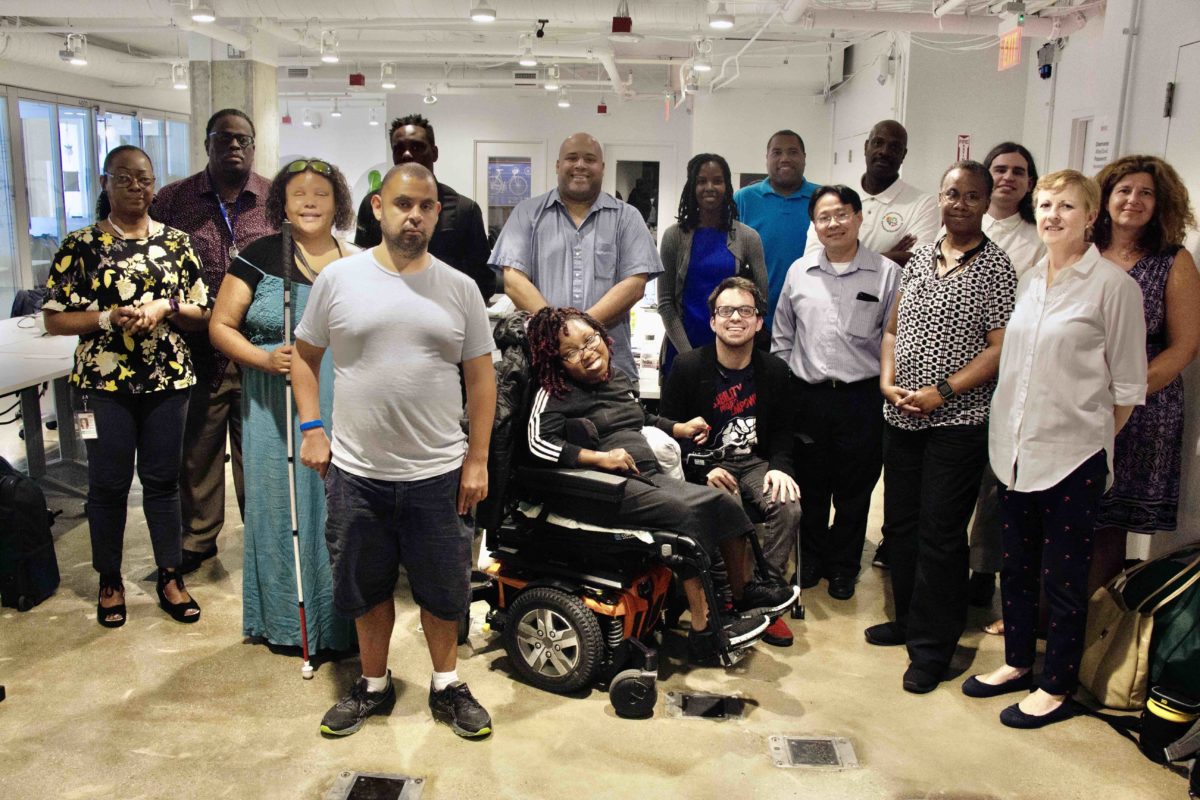For 2Gether-International founder Diego Mariscal, disabilities and entrepreneurship go hand-in-hand.
“From the moment we wake up, we have to figure out how to get dressed, how to get from one place to the next, how to communicate, and that’s inherently an entrepreneurship skill,” Mariscal said.
He’s seen the proof in his organization, such as one entrepreneur who created an app to give away eyeglasses to those in need. Yet, he noted, the community faces some of the highest levels of unemployment and poverty in the world. In D.C., working-age people with disabilities face a 38.5% poverty rate.
It led him to found his not-for-profit startup, which was recently awarded a $75,000 grant from the D.C. Deputy Mayor’s Office for Planning and Economic Development.
“To me, it didn’t make sense to have this community of people that are creative, tenacious, resilient, and yet they’re facing really high levels of discrimination,” he added.
His organization, which holds peer-to-peer support groups, workshops, career coaching and referral services, helps D.C.’s disabled population create and execute business ideas. Marsical founded 2Gether-International in 2012, and has since grown the organization to six members, all of whom are entrepreneurs with disabilities.
“It’s pretty exciting that most of this work has been done by the people who reflect the people we serve. It makes our work really authentic and organic,” Marsical said.
Thus far, the programming has been on an “ad hoc basis,” meaning workshops and coaching occurred on a semi-regular frequency depending on sponsorships and funding.
With the grant, the organization will create a three-month accelerator program for six local businesspeople to receive consistent support beginning in January.
Marsical said the accelerator will allow 2Gether to track its progress in a way it hasn’t been able to before, and apply the results to its other programming. Unlike many accelerators, it’s not requiring applicants to have already begun work on their business idea. It will select the six individuals it believes will benefit the most.
According to Mariscal, the company looks at disability from an identity perspective, meaning it doesn’t require members to provide medical records to join. The organization instead focuses on strengthening the community.
“[DC has] a lot of people that are very passionate about disabilities…So I think you can find a very strong, vibrant community of people that will fight alongside you, that will support you, that will have your back,” Mariscal said. “Which, to me, that’s a form of action and I think that’s a privilege.”
Join the conversation!
Find news, events, jobs and people who share your interests on Technical.ly's open community Slack

DC daily roundup: Washington Post's AI collab; a greentech glossary; Halcyon's debut Climate Fellowship cohort

DC daily roundup: Inside UMCP's new ethical AI project; HBCU founder excellence; a big VC shutters MoCo office

DC daily roundup: Esports at Maryland rec center; High schoolers' brain algorithm; Power data centers with coal?


